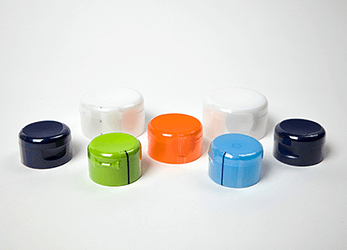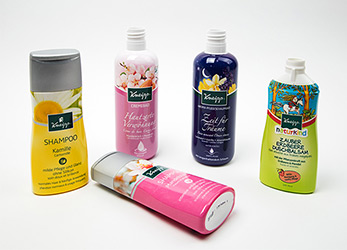The PETG Shrink film is suitable for all kinds of printing technologies from ROTOGRAVURE to FLEXO PRESS using solvent based to UV cured ink. HYF,as a environmentally friendly shrink film factory, we offer PETG shrink film for shaped bottles, PETG high shrinkage film for bottle sleeves, PETG shrink film with high shrinkage, PETG high shrink films, here we shows you the pros and cons of petg material.
Polyethylene terephthalate offers a number of advantages over other substances, including acrylics and polycarbonates. These advantages include:
PETG's strength and impact resistance means it is ideal for glass and high-strength display devices. It is also ideal for 3D printed products, displays and signage. 2.
PETG shrink film is safe for use in food containers and beverage bottles. It is also fully recyclable, which reduces waste and potential negative environmental impact.
PETG can be both vacuum-formed and thermoformed and can withstand high pressures without cracking. It can be molded into various shapes or extruded into sheets.
PETG is naturally transparent and can produce unique effects, but it can also be easily colored and mixed to create different looks.
PETG is non-toxic and odorless during the 3D printing process, making it ideal for home and office use.


There are few disadvantages to using polyethylene terephthalate, but care still needs to be taken, especially with temperature parameters.
When 3D printing PETG, it is recommended to use the correct temperature parameters. It is recommended that you follow the parameters set by each material manufacturer, which are usually 210-260 ºC for the extruder and 60-80 ºC for the base material, although a cold base can also be used. It is also recommended to use low print speeds (30 - 35 mm/sec) while achieving optimal values for the 3D printer.
PETG is more prone to bleed than PLA or ABS, which means you will need to experiment with bridging and retraction settings during the 3D printing process. Therefore, additional post-processing may be required to remove any imperfections.
PETG can absorb water if not stored in a dry environment, which can make the part more brittle.
As with all plastics, PETG can have a potentially negative impact on the environment if not handled properly. It can take decades to break down and cause microplastics to enter the world's oceans. PETG, however, is easily recycled, eliminating these environmental concerns.
PETG is produced using a two-step melt-phase polycondensation process. This relatively simple process joins two different monomers together while releasing a small molecule, such as water.
PETG can be injection molded, sheet extruded, or extruded into fine filaments for 3D printing. This clear, amorphous thermoplastic can also be colored during processing.
As the global market continues to grow, the future of polyethylene terephthalate looks bright, although there is still a need to ensure that used PETG materials are recycled.
Polyethylene terephthalate is a versatile and versatile plastic with many properties that outperform similar materials. With the growing popularity of 3D printing applications, PETG is also widely used in the food and medical industries.
Please contact us now to find more benefits and applications about PETG films, we also have PLA and PVC shrink film for sale.
Copyright © HUBEI HYF PACKAGING CO., LTD. All Rights Reserved | Sitemap
| Powered by

SEOKeywords:Shrink Wrap Film Customized Biodegradable Shrink Film Pvc Shrink Film Rolls Flexible Packaging Film Petg Shrink Film Properties Custom Printed Shrink Film High Shrink Petg Shrink Film China Pvc Shrink Wrap Film Shrink Sleeve Plastic Label Films Shrink Sleeve Packaging Pvc Shrink Film Manufacturing Process Pvc Super Clear Shrink Film Heat Shrink Film Roll Pvc Shrink Film For Bottle Label Price Shrink Wrap Uses China Shrink Film Pvc Clear Shrink Film Printable Shrink Film Plastic Shrink Film